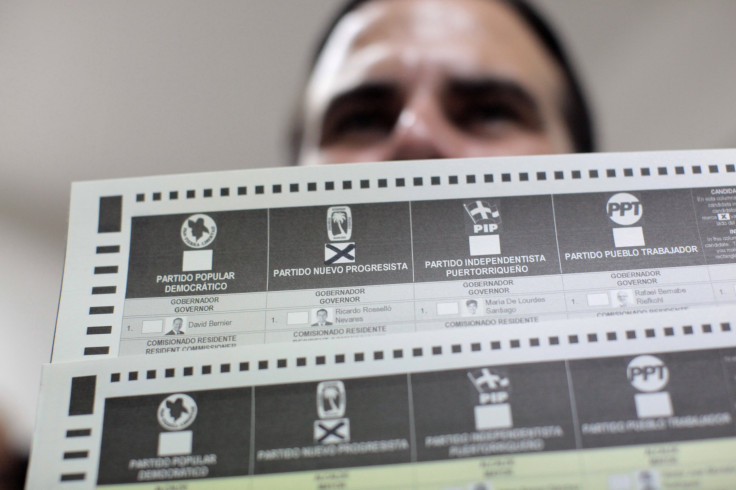Puerto Rico Election Results: Could Commonwealth Become A State? Ricardo Rossello Vows To Make History

Puerto Rico's longtime movement toward statehood saw a significant victory Tuesday night after Puerto Ricans elected Ricardo Rossello of the New Progressive Party in a tightly fought gubernatorial race. Rossello is a vocal supporter of statehood for Puerto Rico and vowed on the campaign trail to turn the debt-ridden Caribbean island into the 51st state.
Puerto Ricans are eager for change. More than 200,000 Puerto Ricans have left the island of 3.5 million people in recent years because of an economic crisis that has seen schools shut down and a shortage nurses and doctors. Puerto Rico owes $70 billion in public debt.
"I'm honored Puerto Rico gave me an opportunity. ... We will establish a quality of life that will allow (Puerto Ricans) to return to the land where they were born," Rossello, 37, said.
He carried nearly 42 percent of the vote, or 566,000 votes, against his main opponent, David Bernier, who had more than 527,000 votes, or 39 percent. Bernier, of the ruling Popular Democratic Party, sought to follow Gov. Alejandro Garcia Padilla, who did not seek a second term.
Rossello, an MIT-trained scientist who flies an American flag at his home near San Juan, said statehood would help Puerto Rico drive its economy forward after a decade-long slump. He is the son of a former governor who also sought statehood, the Associated Press reported.
"We feel statehood or the lack thereof is one of the critical root problems in Puerto Rico," he said.
He plans to hold elections to choose two senators and five representatives for Puerto Rico in Congress, rights not afforded under the island's commonwealth status. Those lawmakers will then go to Washington to demand statehood, he said.
"We reserve the right to use all means necessary so we can finally finish the 500-year debacle that has been colonialism," he said.
His plan isn't unprecedented. It's how Tennessee joined the union in the 18th century.
Spain gave Puerto Rico to the United States in 1898. Puerto Ricans are U.S. citizens, but Congress in 1950 gave the island the authority to establish its own government under its own constitution, making it a commonwealth.
© Copyright IBTimes 2024. All rights reserved.





















